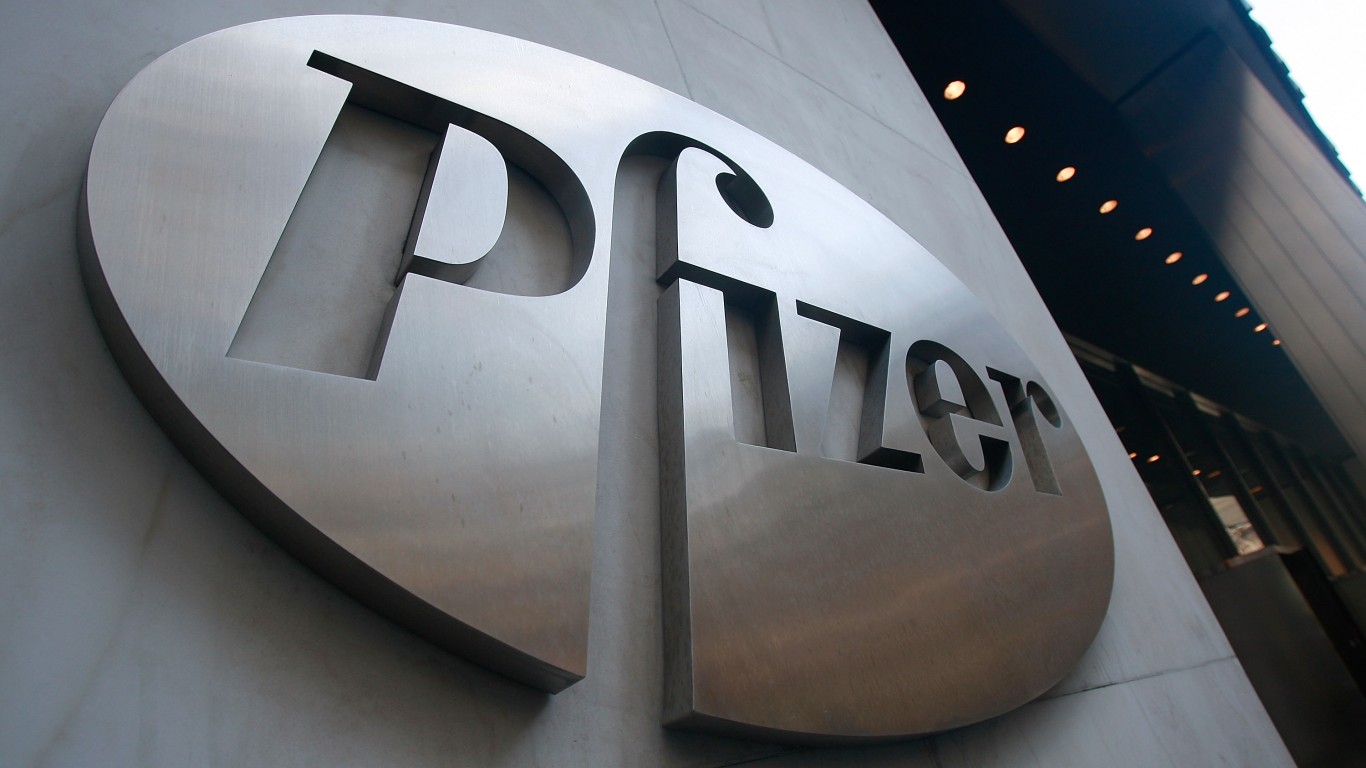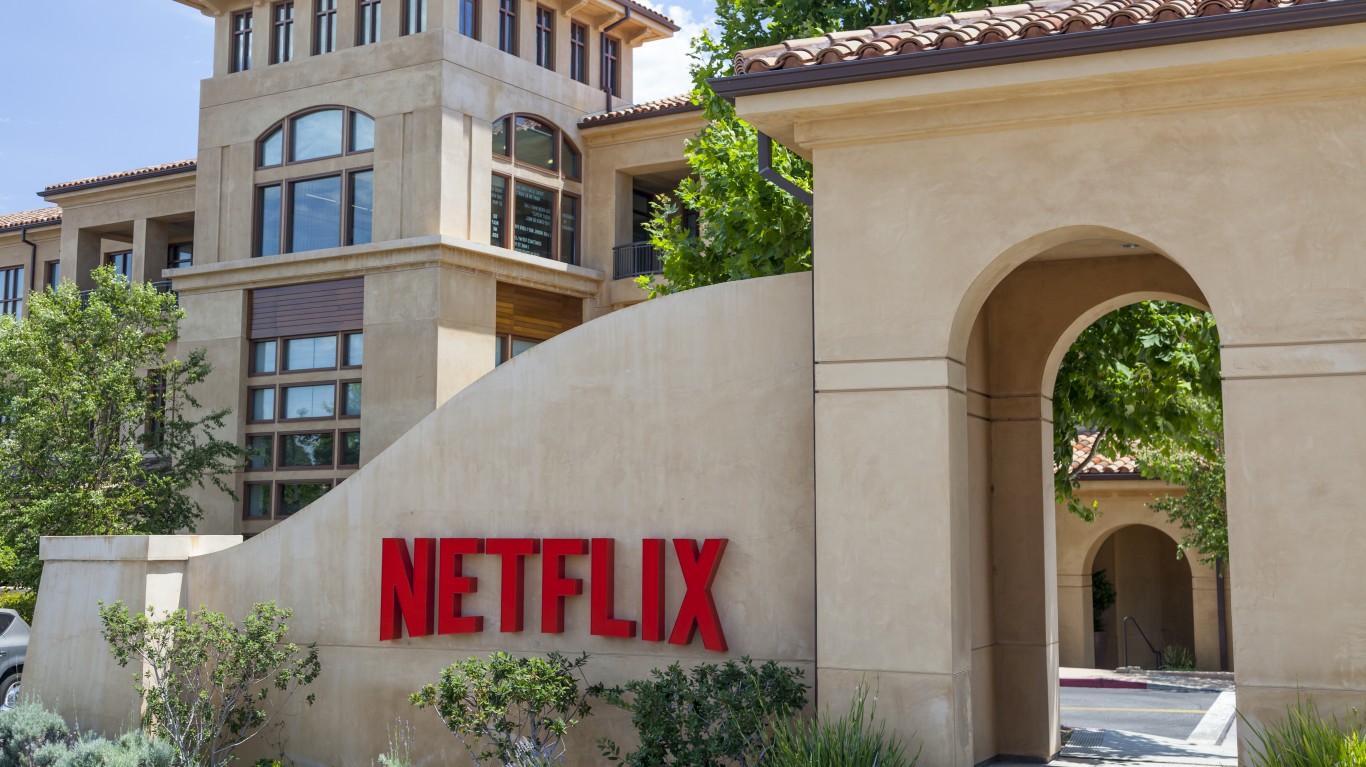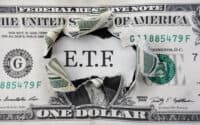
It takes a certain kind of courage to short sell blue chips, such as the Dow Jones industrial average components. Short sellers are betting on these companies to fail, or at least for their share prices to fall handily. Plus, those sellers are responsible for paying the dividends on the stocks they short.
Maybe it is little wonder that only three of the 30 Dow stocks had notable short interest between May 15 and May 31; that is, more than 50 million shares short. In fact, only six of them had short interest of more than 30 million shares.
Yet the bull market is quite long in the tooth — now more than 10 years old — and concern about a coming recession remains as the trade war with China escalates and it looks like interest rates may fall. Investors may wonder then what the short sellers expect from some of the biggest, most well-respected names on Wall Street.
As of the May 31 settlement date, the most recently reported period, short sellers still favored Pfizer Inc. (NYSE: PFE), Intel Corp. (NASDAQ: INTC) and Apple Inc. (NASDAQ: AAPL) above all other Dow stocks.
Pfizer
> Shares short: 69.36 million
> Change from prior period: 4.30%
> Percentage of float: 1.2
This short interest bump seemed modest after the nearly 40% surge in the prior period that ended five double-digit percentage declines in a row before that. The stock remains at the top spot on this list, though the latest figure is nowhere near the 156 million shares short back in January. At the daily average volume on the most recent settlement date, it would take about a day for Pfizer short sellers to cover their positions.
Merrill Lynch considers Pfizer a great total return and defense stock pick against volatility. Its shares ended the short interest period less than 1% lower than where they started. Meanwhile, the Dow, like the S&P 500, retreated around 4% or so between the settlement dates.
Shares of Pfizer closed most recently at $42.67 apiece, more than 3% higher than a week before. The 52-week low of $35.73 was seen about a year ago, and the 52-week high of $46.47 was from this past December. The stock now is more than 2% lower than at the beginning of the year.
Intel
> Shares short: 53.12 million
> Change from prior period: −6.39%
> Percentage of float: 1.2
After a double-digit percentage bump in the prior period, short sellers shied away again, going back to the pattern of the previous three straight periods of modestly declining short interest. The average daily trading volume decreased again in the latest period, and as of the end of last month, it would take about two days for investors to cover all their short positions.
Intel investors might have wished they had sold in May and gone away as the stock had its worst slump since 2008. While the share price ended the short interest period down less than 4%, it was more than 6% lower at one point in those two weeks. The Nasdaq retreated about 6% in that same time.
Intel was last seen trading at $46.85 a share, down handily from the multiyear high of $59.59 seen this spring. The 52-week low is $42.36 per share. Note that the latest share price is about the same as it was at the beginning of the year, while the Nasdaq is up almost 18% year to date and the Dow has seen a gain of less than 12%.
Apple
> Shares short: 51.26 million
> Change from prior period: 3.44%
> Percentage of float: 1.1
While most of the previous period’s short interest decline was recovered in the latest period, Apple stayed put in third place on the list. Note that the latest figure compares with a year-to-date high of almost 97 million Apple shares short at the end of February. The average daily trading volume shrank somewhat during the final two weeks of last month. By that settlement date, the number of days it would take for investors to cover all their short positions remained less than two.
It looked during the two-week period that Apple might be able to avoid paying its recent big settlement with Qualcomm in their long-running dispute. Short sellers watched the share price decline more than 8% by the end of the month, but note that the shares have more than recovered since then, far outpacing the Dow average.
After a pop of about 6% in the past week, Apple stock ended trading most recently at $194.81 a share. That was in a 52-week range of $142.00 (at the beginning of this year) to $233.47 (last October). The share price is more than 23% higher than at the beginning of the year, compared to the gain of less than 12% for the Dow.
And the Rest
Rounding out the top six most shorted Dow stocks on the most recent settlement date were Microsoft Corp. (NASDAQ: MSFT), Cisco Systems Inc. (NASDAQ: CSCO) and Exxon Mobil Corp. (NYSE: XOM). Of these three, only Exxon saw a pullback in the number of its shares short during the final weeks of May. Shares of all three retreated more than the Dow overall during the short interest period, though in the middle of May Cisco was the best-performing Dow stock so far this year.
Also notice on the following list of short interest changes in Dow stocks as of May 31 the big swings at Caterpillar (trade war fallout), Chevron (annual stockholders meeting), Coca-Cola (top Buffett Stock) and Goldman Sachs (Apple credit card):
| Dow Stock | Short (millions) | Change | % Float |
|---|---|---|---|
| Pfizer | 69.36 | 4.30% | 1.20% |
| Intel | 53.12 | −6.39% | 1.18% |
| Apple | 51.26 | 3.44% | 1.09% |
| Microsoft | 44.78 | 3.22% | 0.59% |
| Cisco | 43.67 | 0.54% | 0.99% |
| Exxon | 34.45 | −7.16% | 0.81% |
| Verizon | 28.34 | 3.40% | 0.69% |
| Coca-Cola | 27.50 | 13.66% | 0.65% |
| Visa | 26.98 | 6.19% | 1.54% |
| Walgreens | 23.36 | 1.17% | 2.94% |
| JPMorgan | 21.35 | −0.78% | 0.66% |
| Procter & Gamble | 20.38 | 0.80% | 0.82% |
| Merck | 17.71 | 4.75% | 0.68% |
| Disney | 17.46 | −2.36% | 1.17% |
| Chevron | 16.47 | −13.56% | 0.87% |
| IBM | 14.97 | 0.99% | 1.68% |
| Walmart | 14.86 | −6.90% | 1.04% |
| Johnson & Johnson | 13.39 | 7.65% | 0.50% |
| 3M | 11.44 | 11.72% | 1.99% |
| Caterpillar | 10.65 | −16.63% | 1.85% |
| Home Depot | 10.22 | 9.84% | 0.91% |
| Nike | 8.75 | −10.20% | 0.70% |
| UnitedHealth | 7.19 | 2.20% | 0.75% |
| American Express | 7.11 | −2.58% | 0.85% |
| McDonald’s | 6.75 | −1.46% | 0.88% |
| Dow | 6.73 | −5.83 | 0.90% |
| Goldman Sachs | 6.64 | 17.03% | 1.93% |
| United Technologies | 5.98 | −4.75% | 0.70% |
| Boeing | 5.62 | 4.82% | 1.00% |
| Travelers | 4.28 | 0.04% | 1.63% |
The #1 Thing to Do Before You Claim Social Security (Sponsor)
Choosing the right (or wrong) time to claim Social Security can dramatically change your retirement. So, before making one of the biggest decisions of your financial life, it’s a smart idea to get an extra set of eyes on your complete financial situation.
A financial advisor can help you decide the right Social Security option for you and your family. Finding a qualified financial advisor doesn’t have to be hard. SmartAsset’s free tool matches you with up to three financial advisors who serve your area, and you can interview your advisor matches at no cost to decide which one is right for you.
Click here to match with up to 3 financial pros who would be excited to help you optimize your Social Security outcomes.
Have questions about retirement or personal finance? Email us at [email protected]!
By emailing your questions to 24/7 Wall St., you agree to have them published anonymously on a673b.bigscoots-temp.com.
By submitting your story, you understand and agree that we may use your story, or versions of it, in all media and platforms, including via third parties.
Thank you for reading! Have some feedback for us?
Contact the 24/7 Wall St. editorial team.



